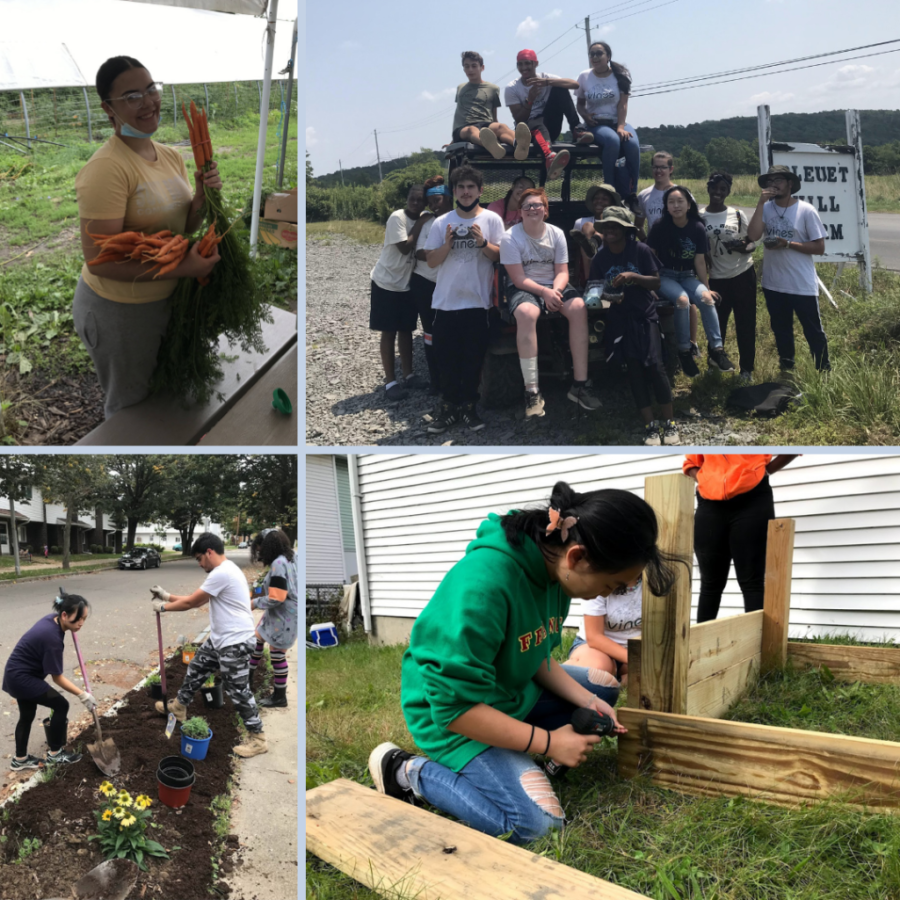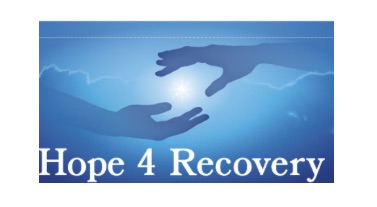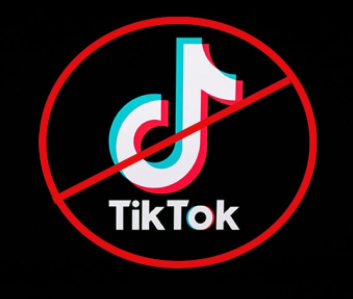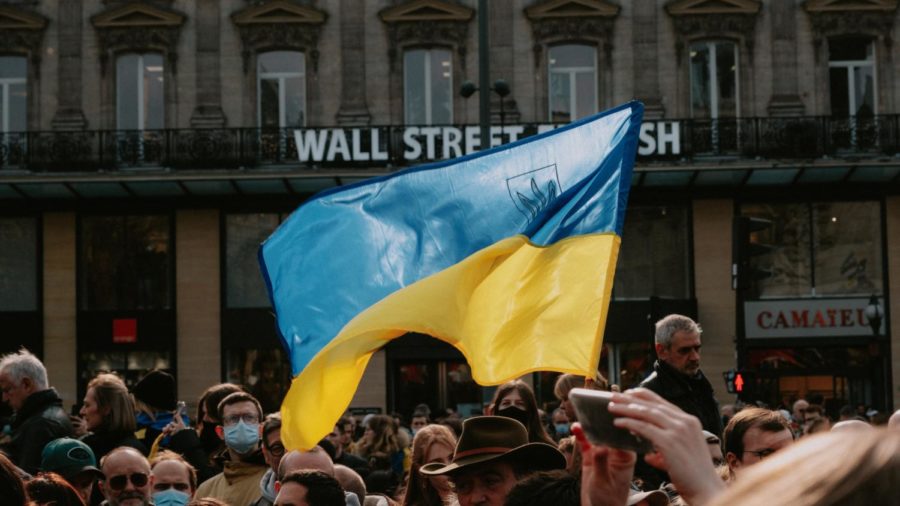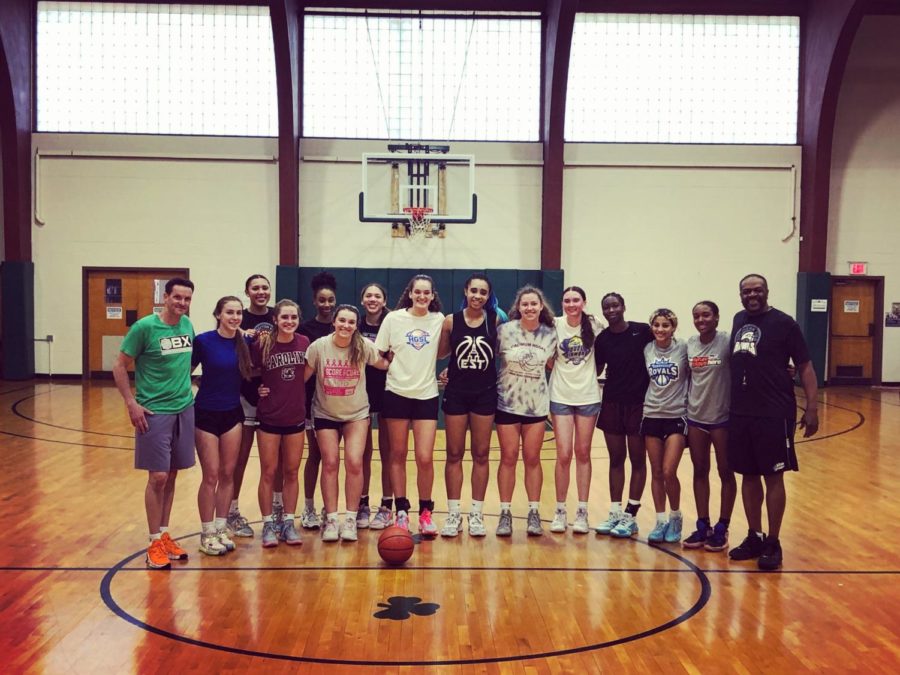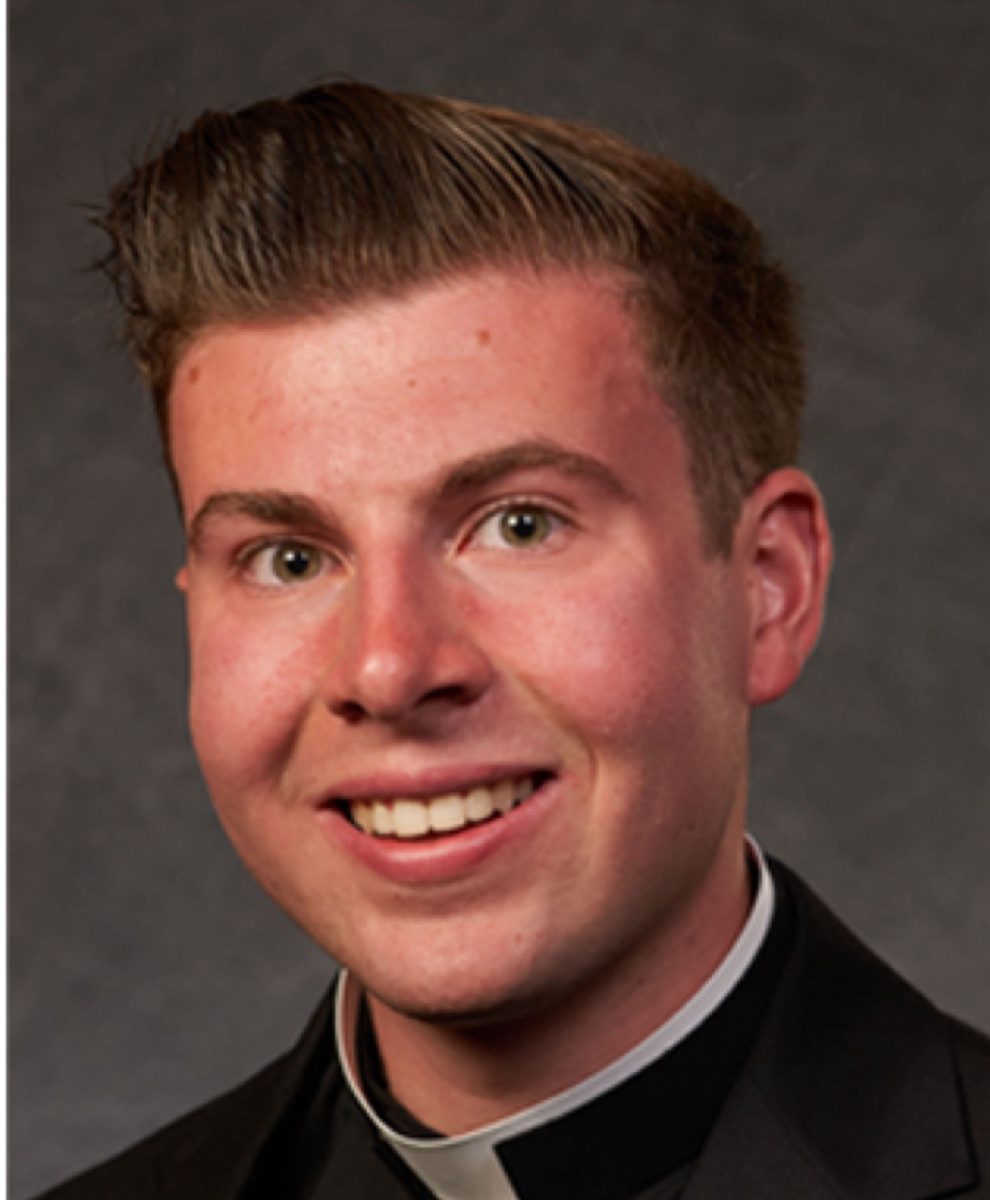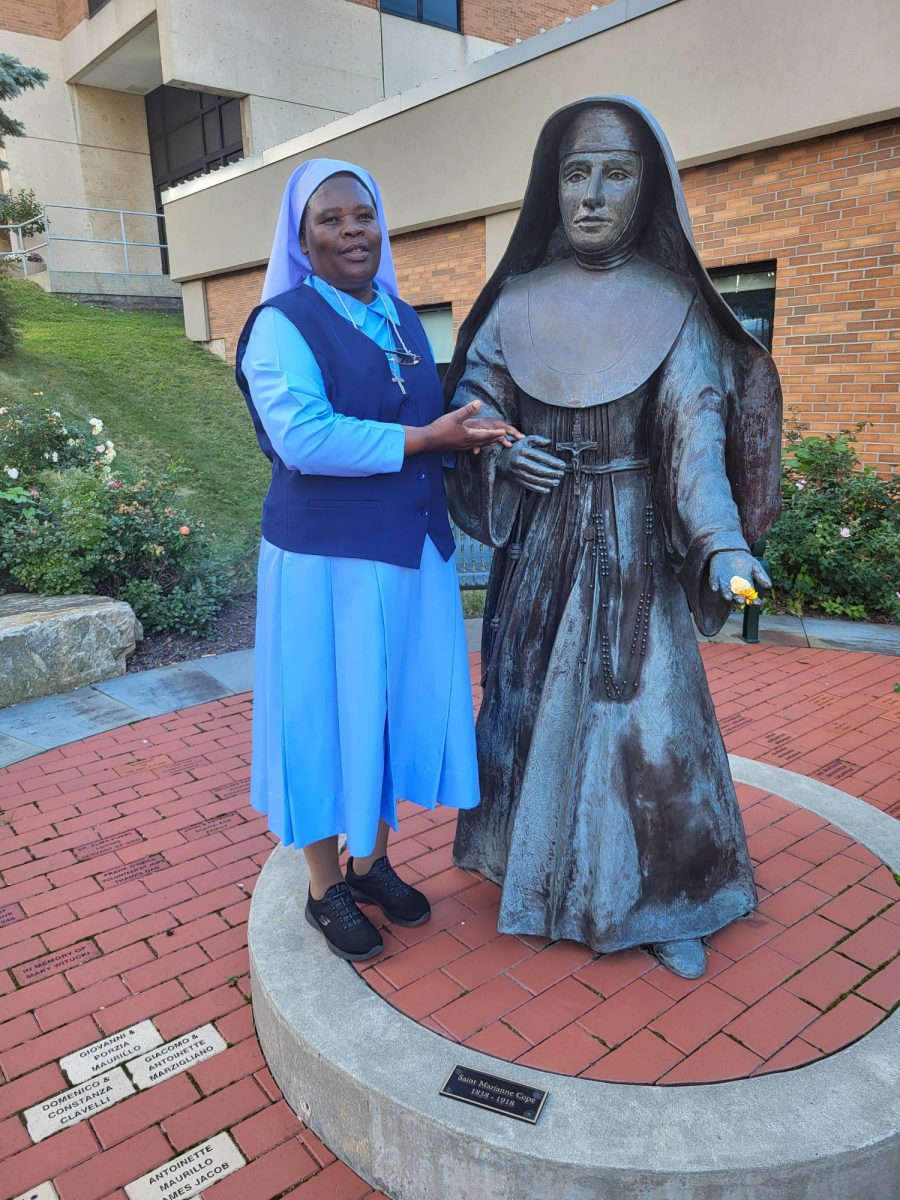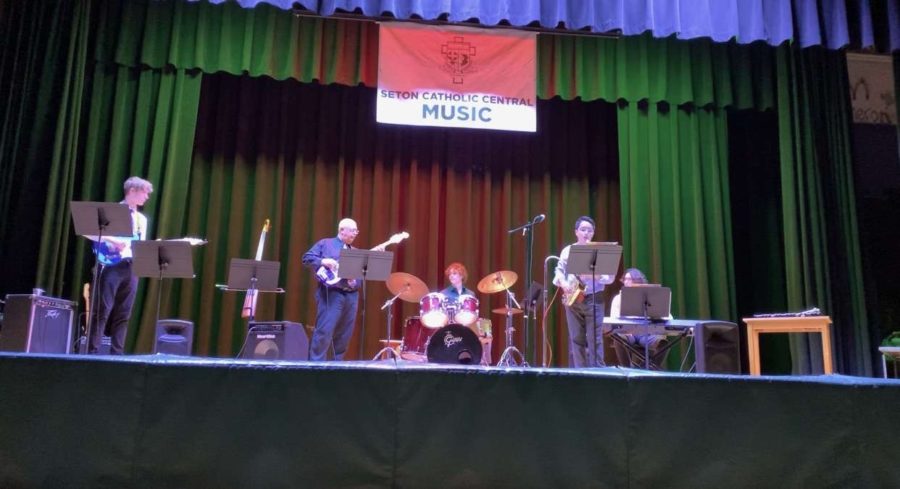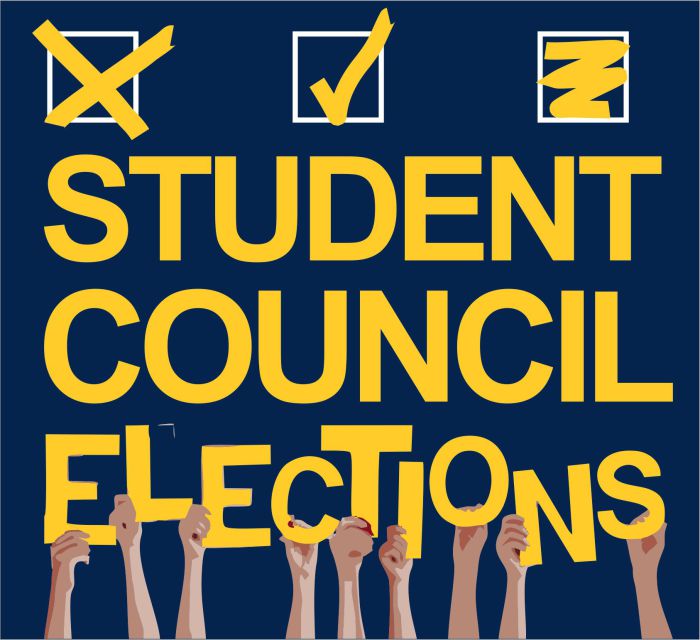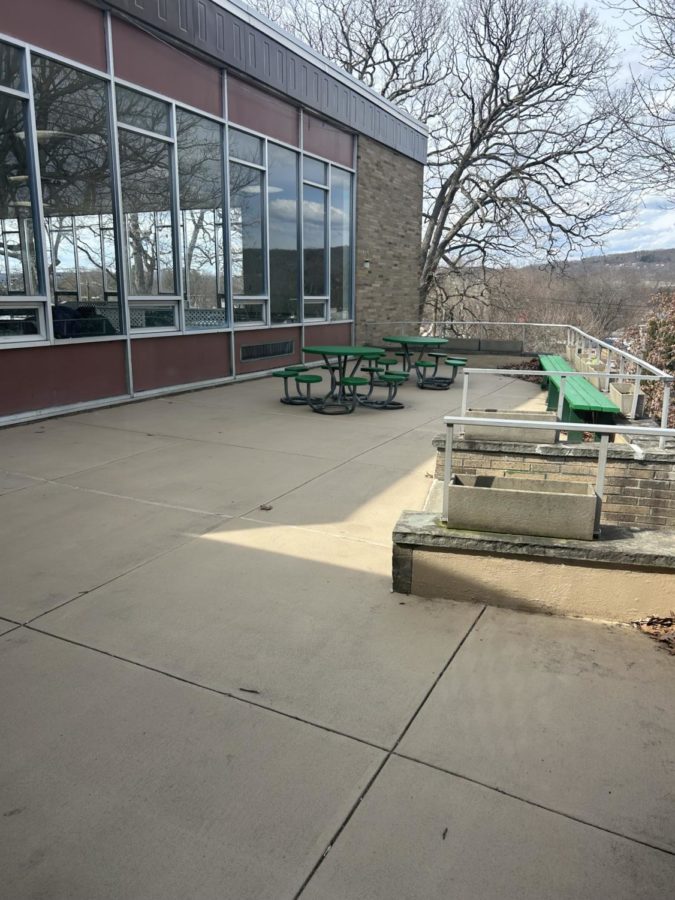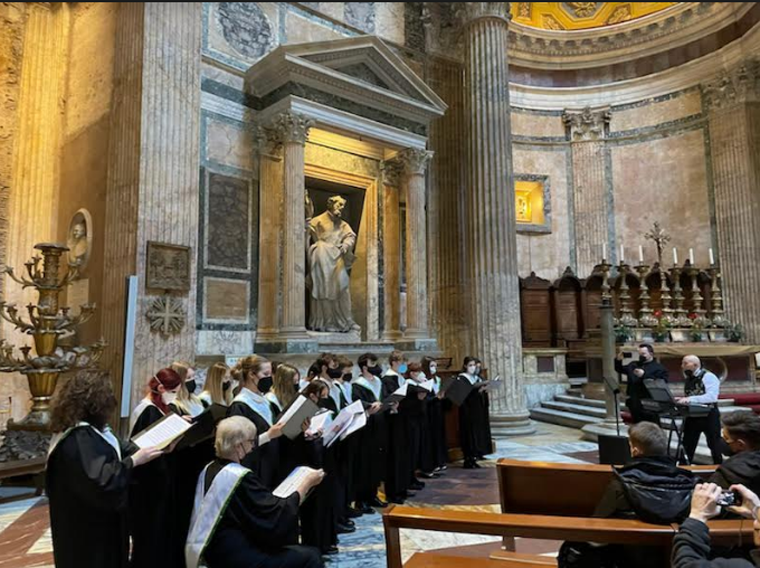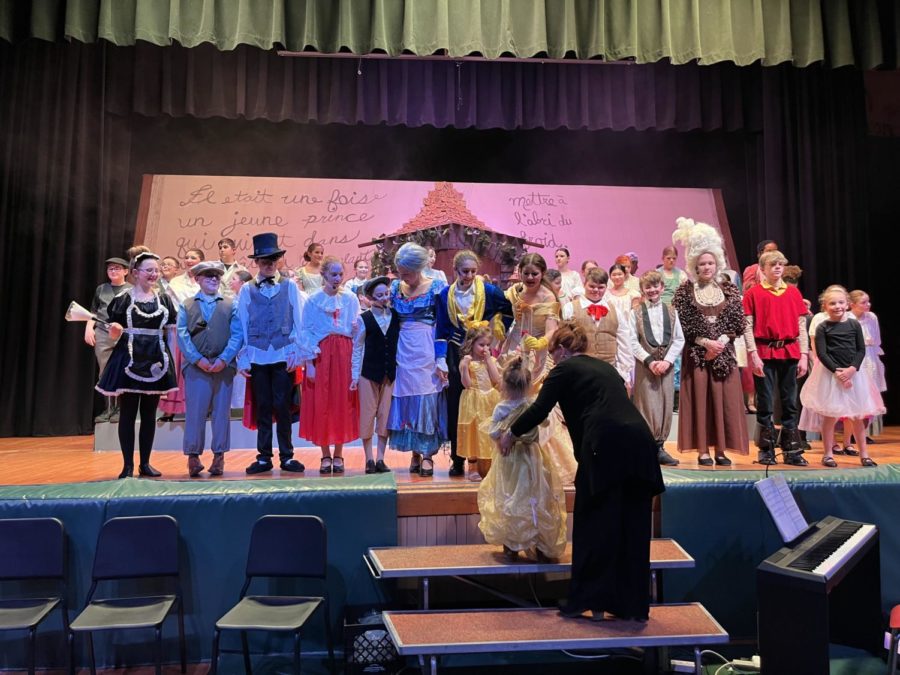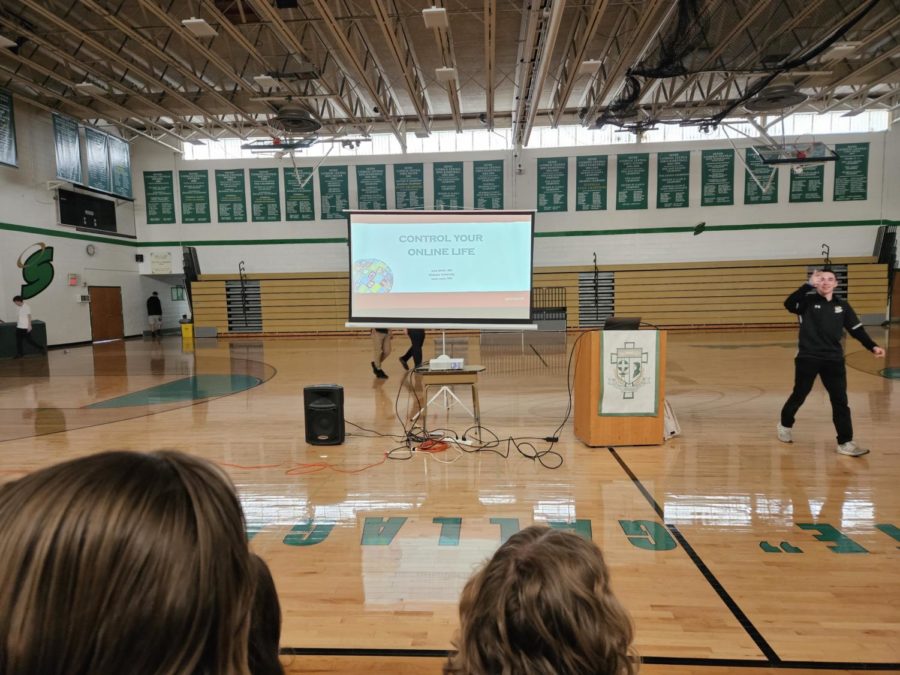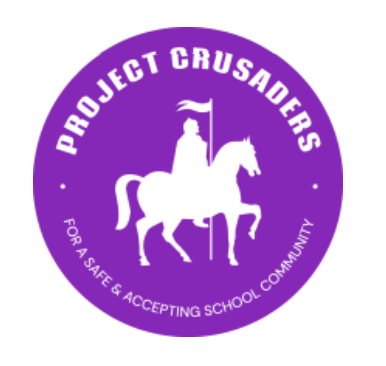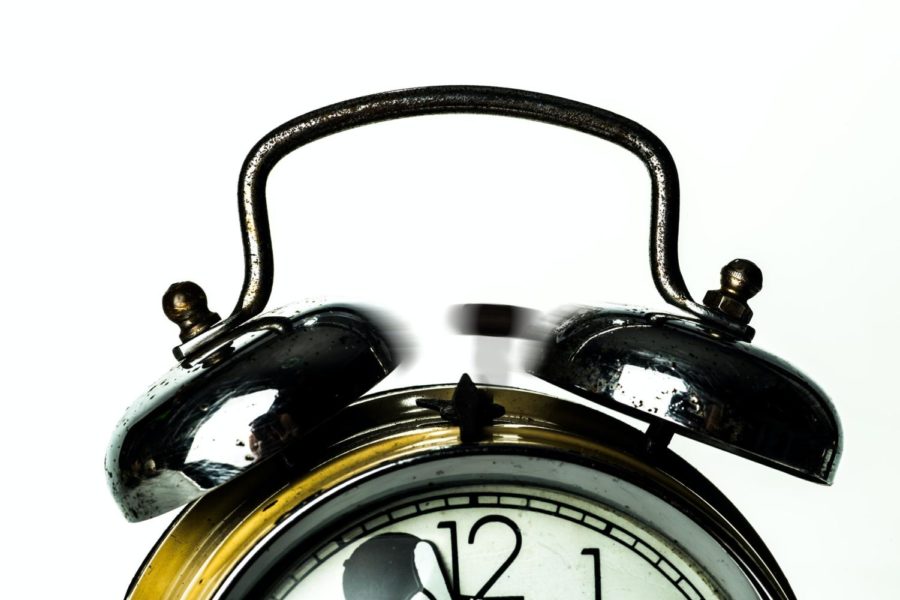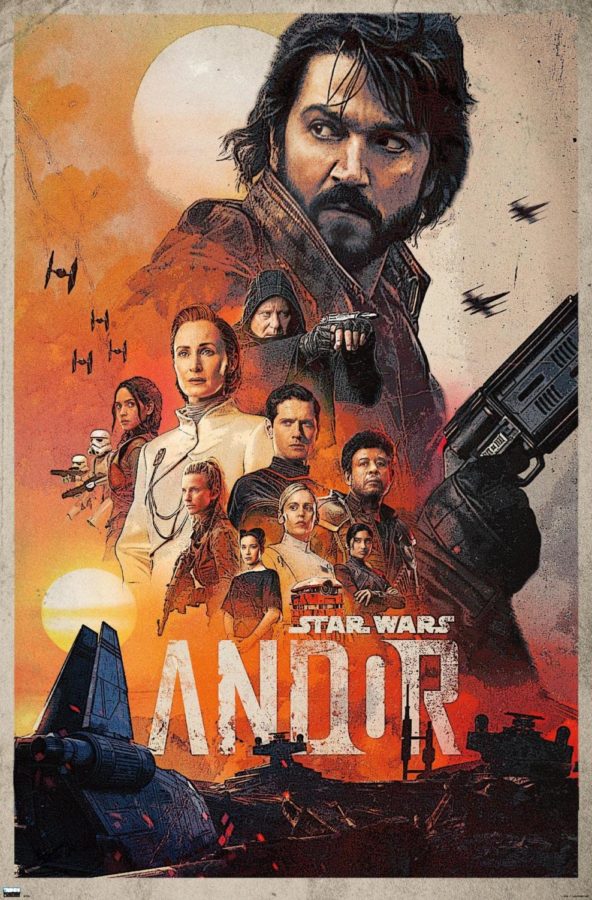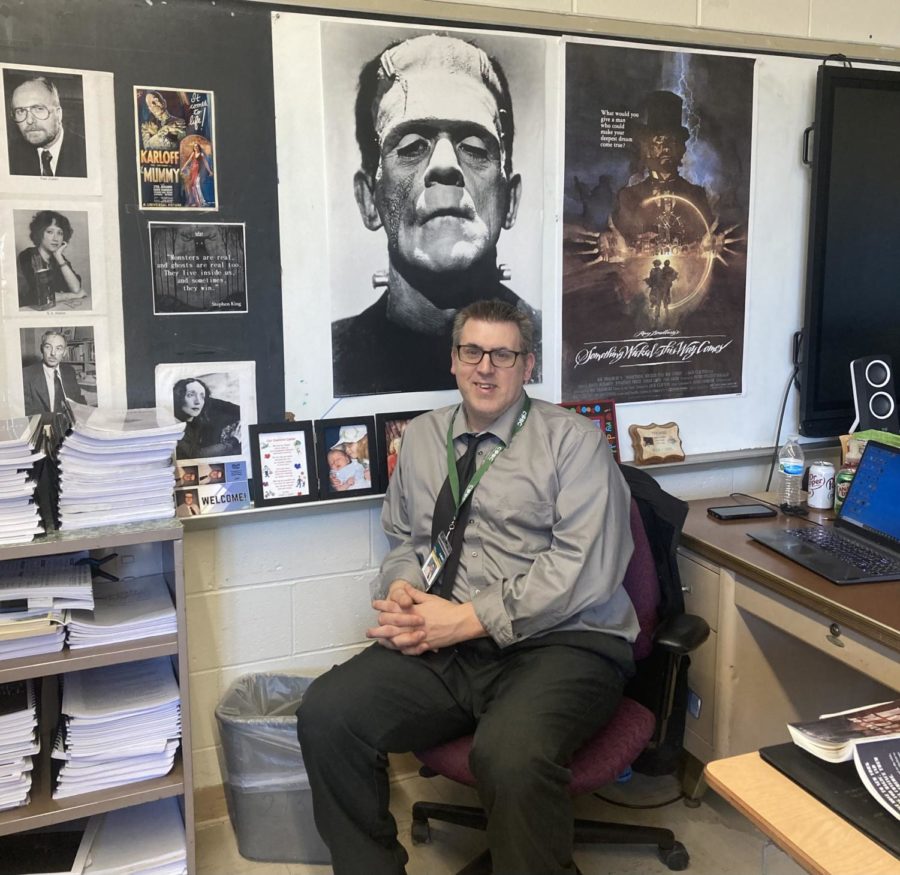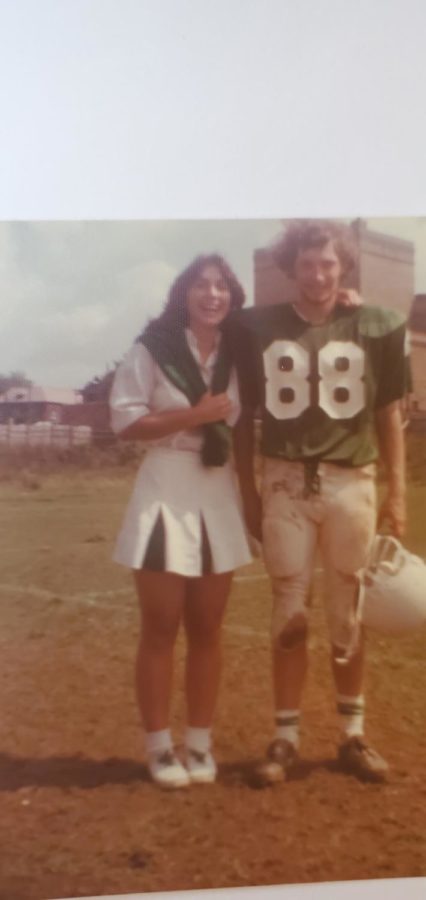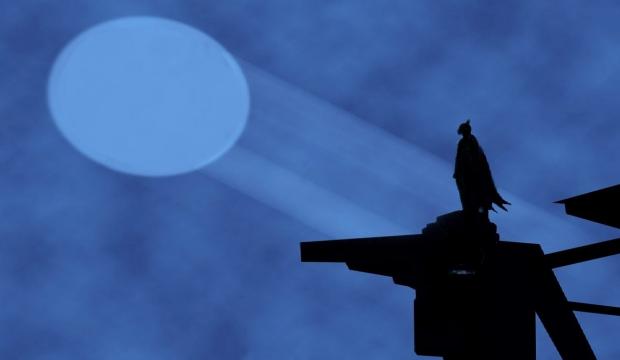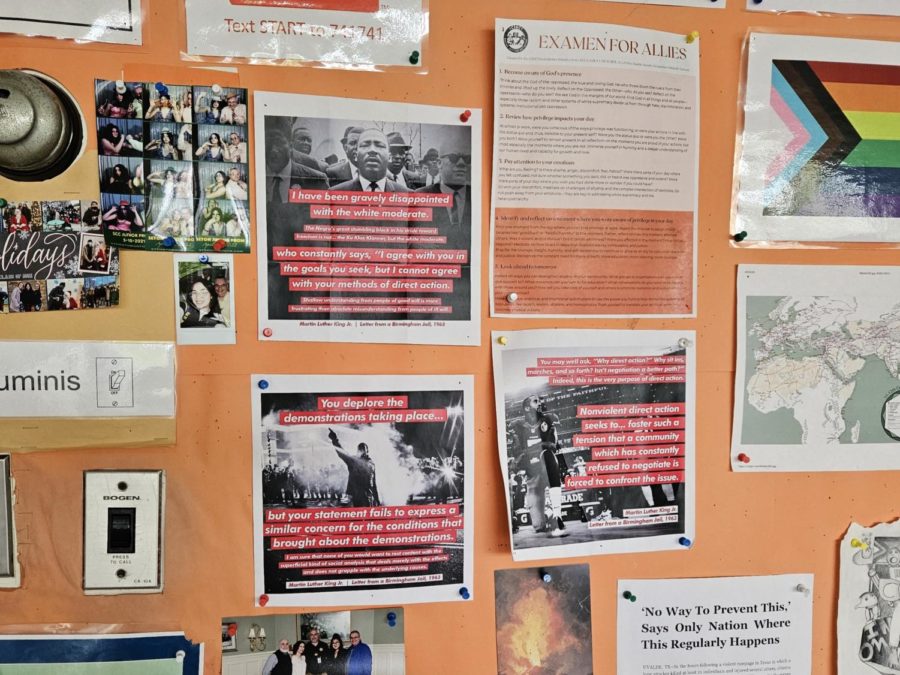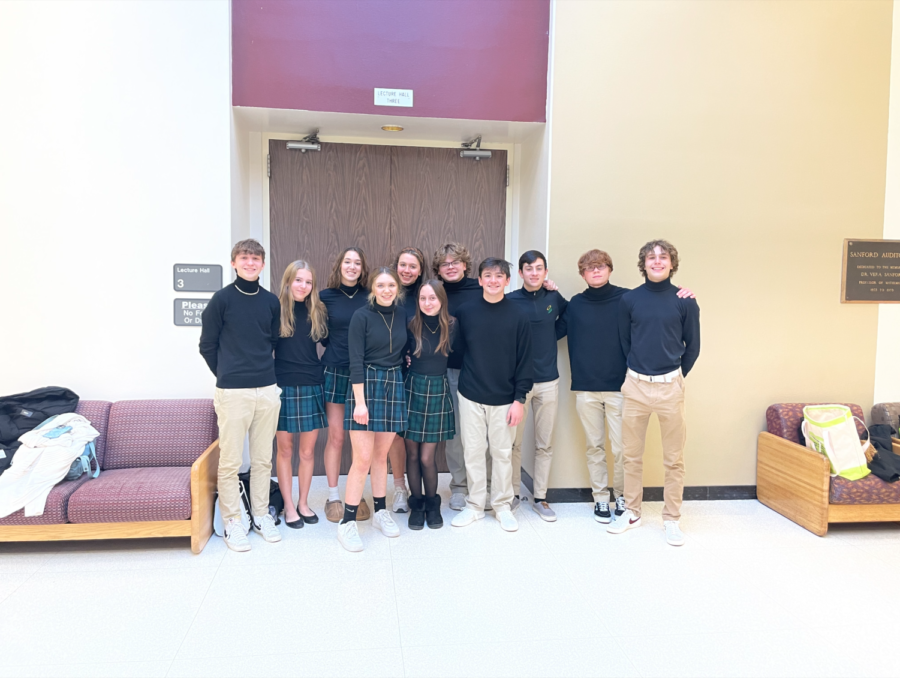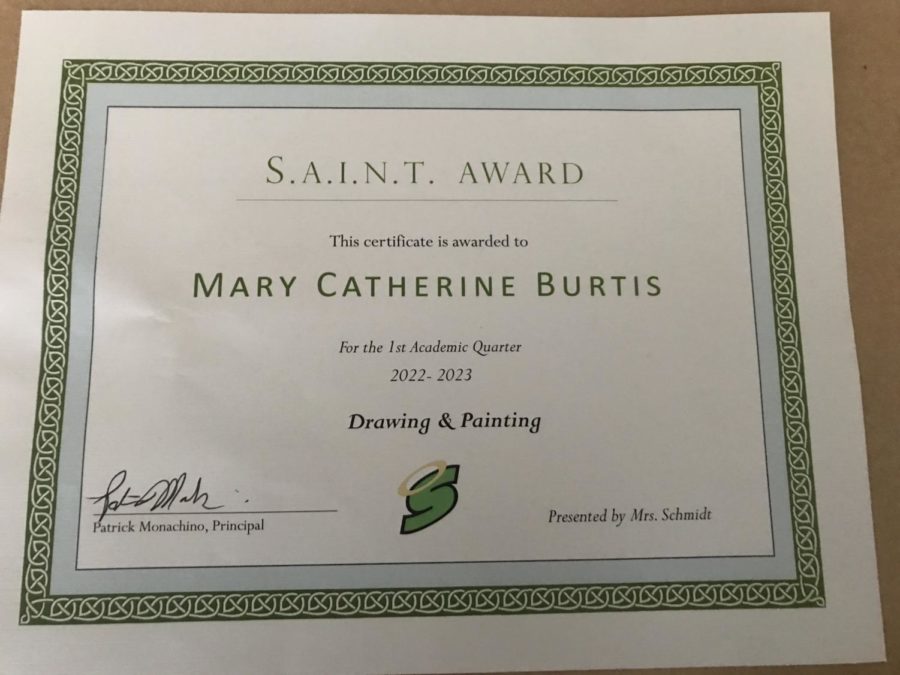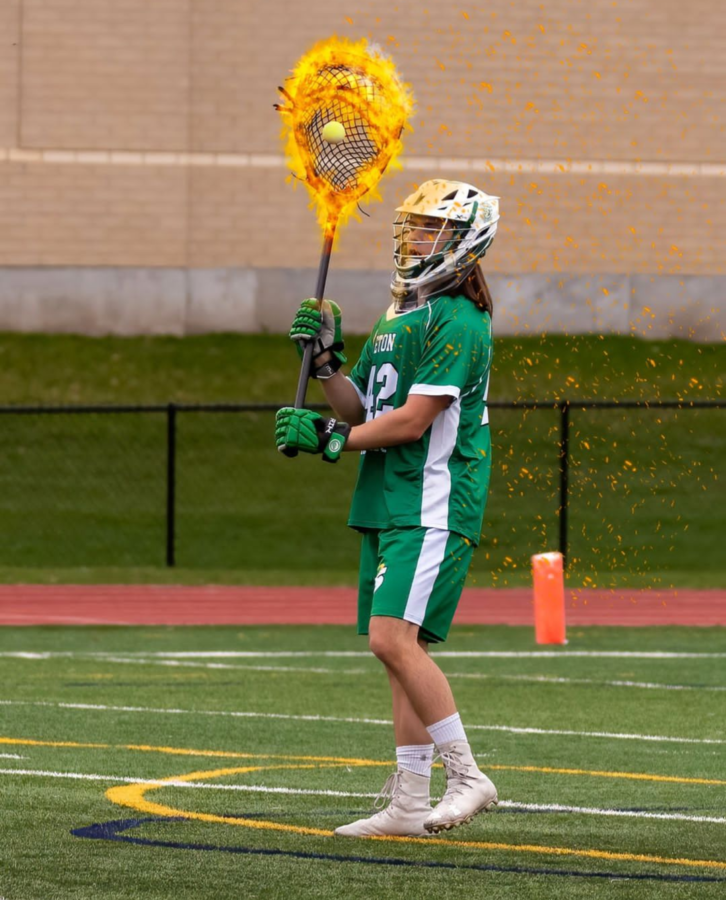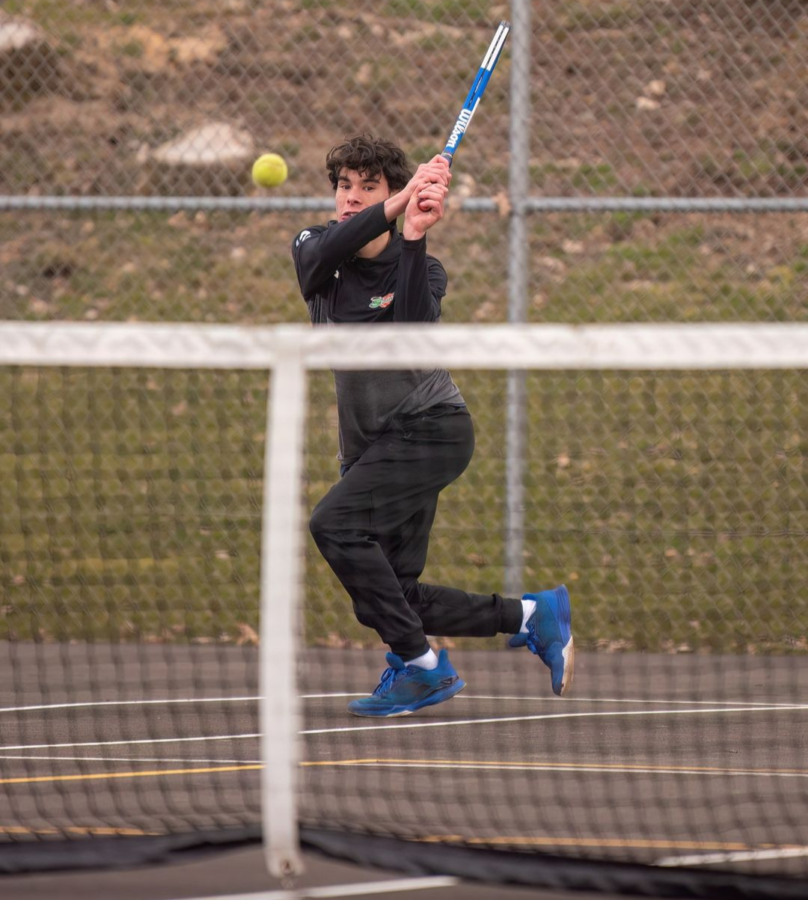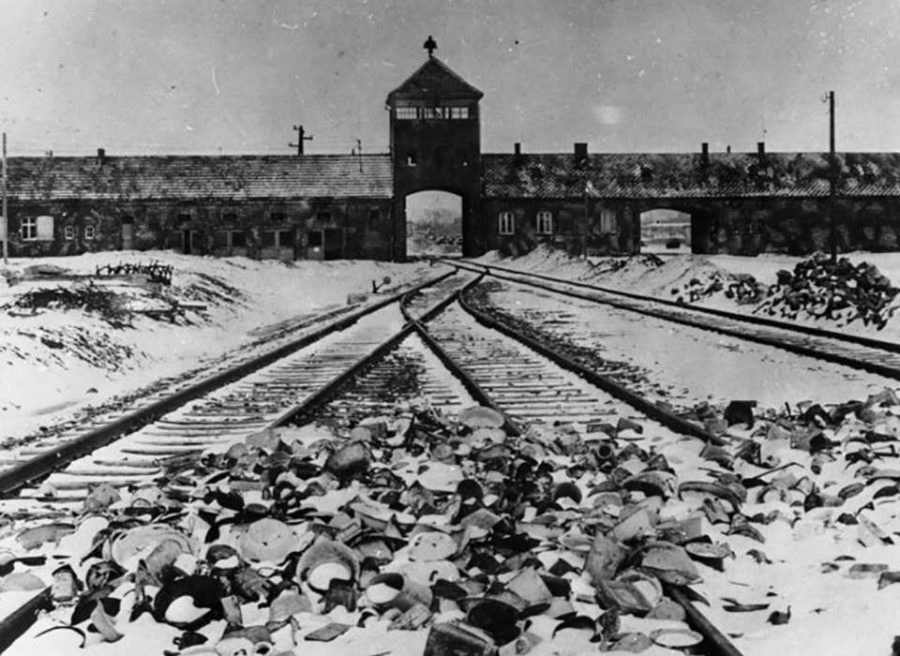Why We Remember the Holocaust
Entrance to Auschwitz concentration camp, where about a million Jewish people and other minorities perished in the Holocaust (Source: https://www.nationalww2museum.org/war/articles/memoirs-by-holocuast-survivors)
February 27, 2023
On February 2nd, students in grades nine through twelve received a presentation over Zoom from Mr. Daniel Goldsmith, a survivor of the Holocaust. Mr. Goldsmith shared his riveting story of survival and discussed the importance of remembering the horrid event that took the lives of millions of Jews and other marginalized groups during World War II. Such remembrance is especially crucial in today’s society, where anti-Semitism is on the rise all around the world. Students and teachers here at Seton reflected upon Mr. Goldsmith’s story and its relevance, with insight into how the Holocaust teaches us a crucial lesson that must be remembered in our society.

Mr. Goldsmith was just a child when the Germans invaded Belgium in 1940. His family, including his mother, father, and younger sister, (Ruchel, Chaim, and Lillian) along with many others, attempted to flee but were forced to turn back to their home in Antwerp, Belgium. There, Jewish people began to face discrimination through restrictions that worsened with each new decree. Some restrictions included banning Jewish people from certain professions and public places, and forcing them to wear a yellow star. In 1942, Chaim received a notice to go to a labor camp, and Daniel described saying goodbye to his father, remembering the words he spoke to him; “You are the little man in the house now, and so you’ll have to help take care of your mother and your sister until I come back.” This was the last time Daniel would ever see his father, describing it as “the day I lost my childhood.
In September 1942, the Nazis raided Daniel’s street in the night, pulling Jewish people from their homes. The yelling, screaming and commotion woke Daniel’s mother, who took her children onto the roof of their house to hide under a blanket. “I remember shivering because I didn’t know what was going to happen,” Daniel told. After the raid was over, Ruchel, with the help of a friend who was a part of the Belgium Underground (a resistance movement), arranged for her children to be hidden in a Catholic convent. She herself joined the Belgium Underground, becoming a messenger.
In December 1942, Ruchel returned to retrieve her children, and warn Mother Superior that the Nazis were coming to raid the convent. She arranged for Lillian to hide with a Catholic family, and Daniel to hide in a Catholic boys’ orphanage, where he was given the false name “Willy Peters”, acting as a Catholic boy; going to mass, altar serving, and attending school. The priest caring for Daniel at the orphanage transferred him to another orphanage to ensure his safety. In 1944, the Nazis raided the orphanage, discovering five Jewish boys there, including Daniel. They did this by forcing all the boys to strip naked to tell if they had been circumcised (as at the time, only Jewish boys had the procedure done at birth). The boys were questioned, taken into prison, then put in a freight car.
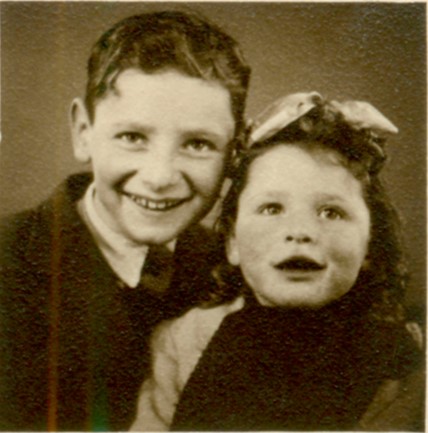
The oldest of the five boys, Joseph, helped initiate escape by prying off the wood of the car, making a hole big enough to get through, and pushing the boys out of the cart when the train slowed down. The boys hid in the woods, and Joseph courageously went to the nearby town and implored the help of a Catholic priest at the rectory of the town’s church. The priest was very receptive and placed each boy in a home to hide. Daniel was placed in the home of a kind Catholic family, who hid him in the attic, where he remained quiet the whole day.
In the fall of 1944, Daniel was liberated by American soldiers. The family he was hiding with began to seek out his mother and found her; Ruchel had been keeping track of Daniel, trying to find out where he was. On her way to meet with a fellow member of the Belgium Underground to try to find Daniel, she’d been caught in an air raid, losing her entire left leg, and was recovering in the hospital.
Daniel and his mother were joyfully reunited, but as she was unable to care for him, he stayed with the Catholic family until he was brought to a home for misplaced Jewish children. After the war ended, more orphans arrived from concentration camps, when people truly began to learn of the horrors of the Holocaust. Daniel and 50 other children were brought to a home with more specialized care, where he learned his father had died at Auschwitz. The news was devastating to Daniel, who was dearly attached to his father.
Daniel’s uncle, an American soldier fighting in World War II, found Ruchel in 1946. She arranged for him to have their family in America sponsor her and her children so they could come to the United States. Daniel, Ruchel, and Lillian arrived in New York Harbour on April 17th, 1948.
After telling his story, Daniel discussed the importance of remembering what happened in the Holocaust and defying hate. His words are filled with wisdom from which each of us can learn something.
Daniel’s powerful story is a testament to the importance of remembering the Holocaust, and the crucial lesson of how hate can become a force of destruction. Nonetheless, our society seems to be forgetting that lesson as we move further away from the Holocaust in years: “Time is the enemy of memory. As years pass and witnesses die, people tend to lessen the impact of world-shaking events,” Mr. McDonough explained. Sophomore Maia Graham expressed similar sentiments: “In 2023 people have grown detached from the lessons left behind by the concentration camps and the fascist Nazi party’s brainwashing and hatred.”
Maia also posed a chilling question. “It seems like something we could never forget, but Holocaust deniers are growing in numbers, and neo-Nazism is a prevalent shadow looming over us all. What if we just don’t forget, what if it just becomes easier to completely erase the Holocaust from historical existence?”
With careless and hateful comments and remarks, the rise of the internet, and anti-Semitic hate that has been spewed for thousands of years, such an awful notion seems possible in our world. The chances increase even more as we see survivors and witnesses of the Holocaust passing on, their first-hand accounts of the event slipping by with time as well.
But, how has the story of the Holocaust lasted up to this point? Of course, it was a brutal and heinous act of genocide that lies in our history books. However, this isn’t the reason why Holocaust museums, monuments, and memorials lie all around the world, or why our students gathered in the gymnasium on February 2nd.
We remember the Holocaust because of people like Mr. Daniel Goldsmith. People who have seen or faced a wrong, and have the courage to speak out, regardless of what pain or consequence it may bring on for them. We remember the Holocaust because of what they are telling us.
Daniel’s story allows us to make a more personal connection to the Holocaust, and to the people who suffered and died during it. When asked what element of Mr. Goldsmith’s story stood out to them, all of the teachers and students we talked to highlighted the small details of the story that made it humane. Made it more intimate. Details of escape, hiding, and underground networks. The kindness of the Catholic family who hid Daniel. How young Daniel was when he lost his childhood. These are the things that help us remember that the Holocaust happened to real people. Like you and me.
When we recognize the humanity in the victims of hate (like those in the Holocaust), we must act upon that notion by treating them humanely. Simple, right? Do not hate, or persecute others. But treating people with humanity goes so much further than that. It means stepping up to defend and care for your neighbor, and not assuming neutrality for the sake of staying out of trouble. As author and Holocaust survivor Elie Wiesel once said, “Neutrality helps the oppressor, never the victim. Silence encourages the tormentor, never the tormented.”
Mr. Jones shared a poem encapsulating this exact idea, called “First They Came” by Martin Niemöller, a pastor who was put in a concentration camp during the Holocaust.
FIRST THEY CAME – BY PASTOR MARTIN NIEMÖLLER
First they came for the Communists
And I did not speak out
Because I was not a Communist
Then they came for the Socialists
And I did not speak out
Because I was not a Socialist
Then they came for the trade unionists
And I did not speak out
Because I was not a trade unionist
Then they came for the Jews
And I did not speak out
Because I was not a Jew
Then they came for me
And there was no one left
To speak out for me
The words speak volumes. If we see injustice in our world and choose to ignore it, the consequences are dire. This is why people like Daniel tell their stories; to warn how hate, and the lack of action against it, lead to worse circumstances than we could imagine: “The Holocaust exposed the end goal, but are we really aware of the incremental steps that got us there?” Mr. Jones asked. And this threat still presents itself today. “That’s why these things happen in history, because we choose to ignore and forget in order to spare ourselves the trouble of staring into the past, and most importantly, what that reflects onto our present reality,” Maia Graham said. And she couldn’t be more right.
Hearing the stories of brave people like Daniel helps us to remember what hate and inaction against it is capable of. However, it is up to each one of us, to take this lesson, and speak out and fight against injustices we see in the world, to ensure that something like the Holocaust may never happen again.

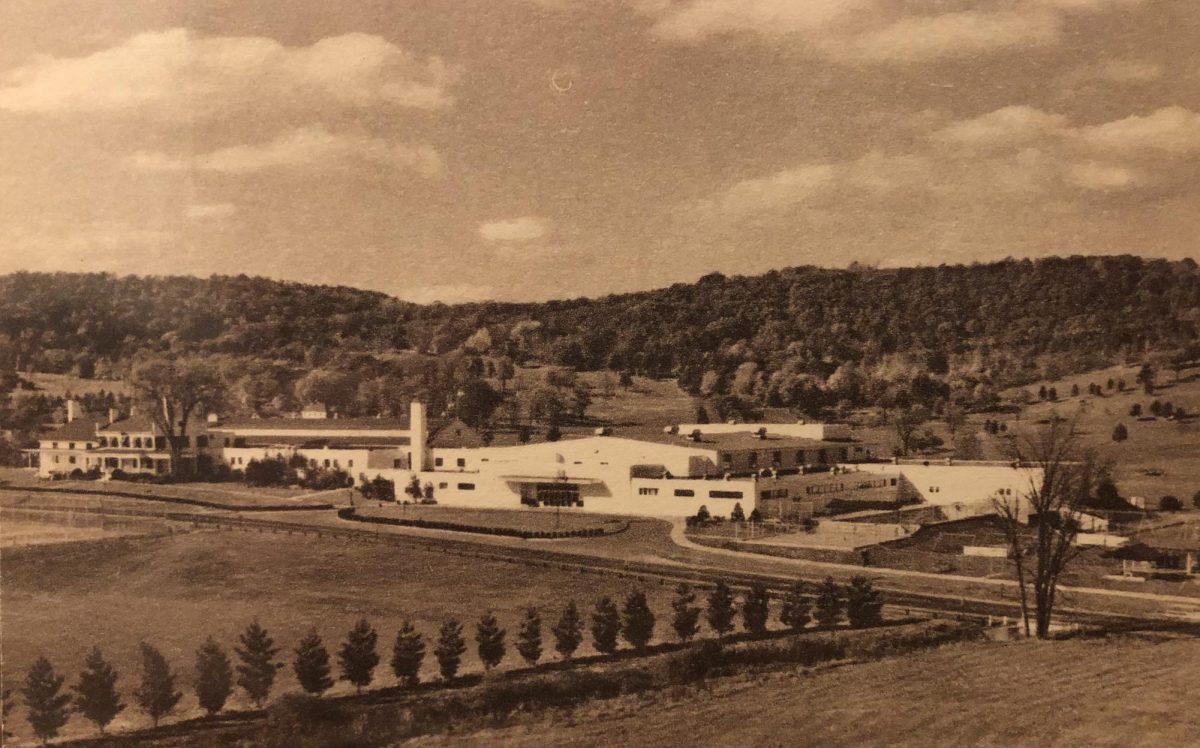

![College of Community and Public Affairs graduates cheering during the CCPA Commencement Ceremony. [Via Daily Photos at binghamton.edu]](https://sccvoice.org/wp-content/uploads/2023/05/Screenshot-2023-05-16-10.50.55-PM.png)
